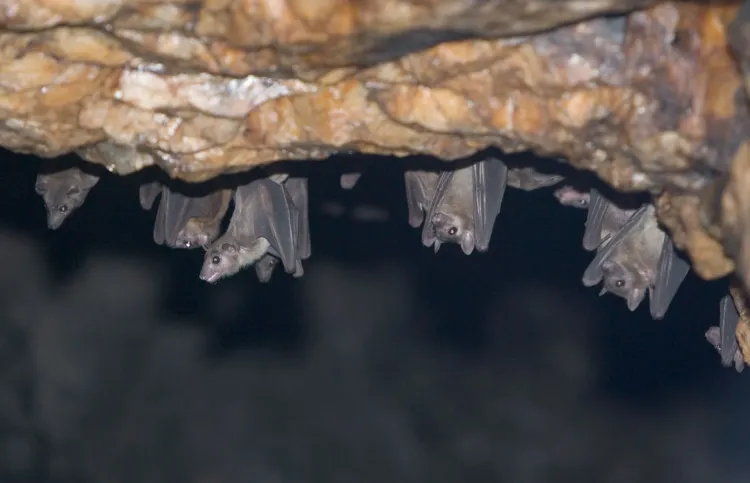How Did an Australian Man Die from an “Extremely Rare” Bat Virus Bite?

Synopsis
Key Takeaways
- An Australian man died from an extremely rare bat virus.
- The Australian bat lyssavirus is closely related to rabies.
- Immediate medical attention is crucial after a bat bite.
- There is no effective treatment once symptoms of lyssavirus appear.
- Awareness and prevention are key to avoiding bat-related incidents.
New Delhi, July 3 (NationPress) An Australian man in his 50s tragically passed away after suffering a bite from an “extremely rare” bat virus that resulted in a rabies-like infection, as reported by health officials on Thursday.
The man, hailing from northern New South Wales (NSW), was bitten by the Australian bat lyssavirus—a virus closely related to rabies—“several” months prior, according to a statement released by NSW Health. Despite receiving treatment at that time, the intervention was ultimately ineffective.
“We extend our heartfelt condolences to the family and friends of the deceased for their devastating loss,” NSW Health stated.
“Although cases of Australian bat lyssavirus are exceedingly rare, there is currently no effective treatment available for it,” they added.
The unidentified man was reported to be in a “critical condition” in a hospital this week.
Lyssavirus is spread from infected bats to humans when the virus present in bat saliva enters through a bite or scratch. It shares a close relation with the rabies virus and has been detected in various species of flying foxes, fruit bats, and insect-eating microbats.
Authorities indicated that an “investigation is ongoing to determine if other exposures or factors contributed to his illness.”
This incident marks not the first occurrence of Lyssavirus in Australia. Keira Glasgow, a Director of Health Protection at NSW Health, noted that “118 individuals required medical evaluation after being bitten or scratched by bats in 2024.” However, this latest case represents the first confirmed instance of the virus in NSW, and the fourth case recorded in Australia.
“It is incredibly rare for the virus to be transmitted to humans, yet once symptoms appear in individuals bitten or scratched by an infected bat, unfortunately, there is no viable treatment,” she stated.
Glasgow strongly urged individuals “to avoid contact with bats,” emphasizing that any bat in Australia could potentially carry lyssavirus. This is why only trained, protected, and vaccinated wildlife handlers should engage with bats, she advised.
“If you suffer a bite or scratch from a bat, it is imperative to seek immediate medical attention. You should thoroughly wash the wound with soap and water for 15 minutes, apply an antiviral antiseptic like betadine, and allow it to dry. Subsequently, you will need treatment with rabies immunoglobulin and the rabies vaccine,” Glasgow added.









